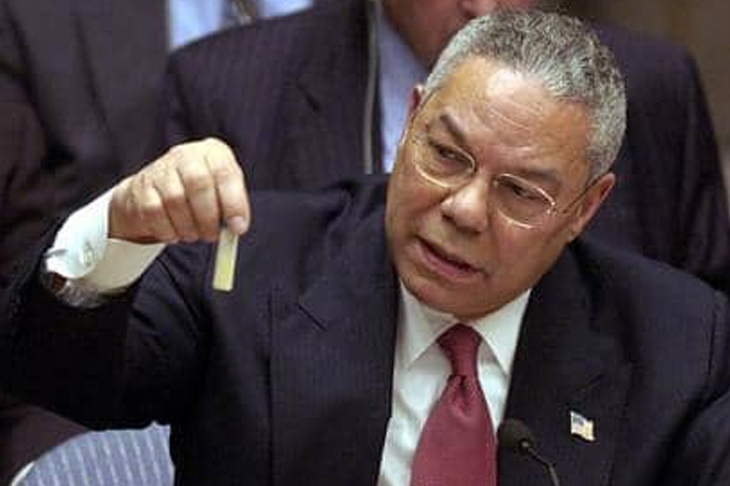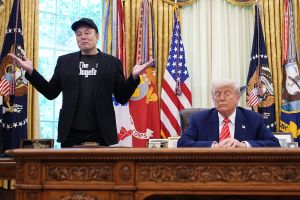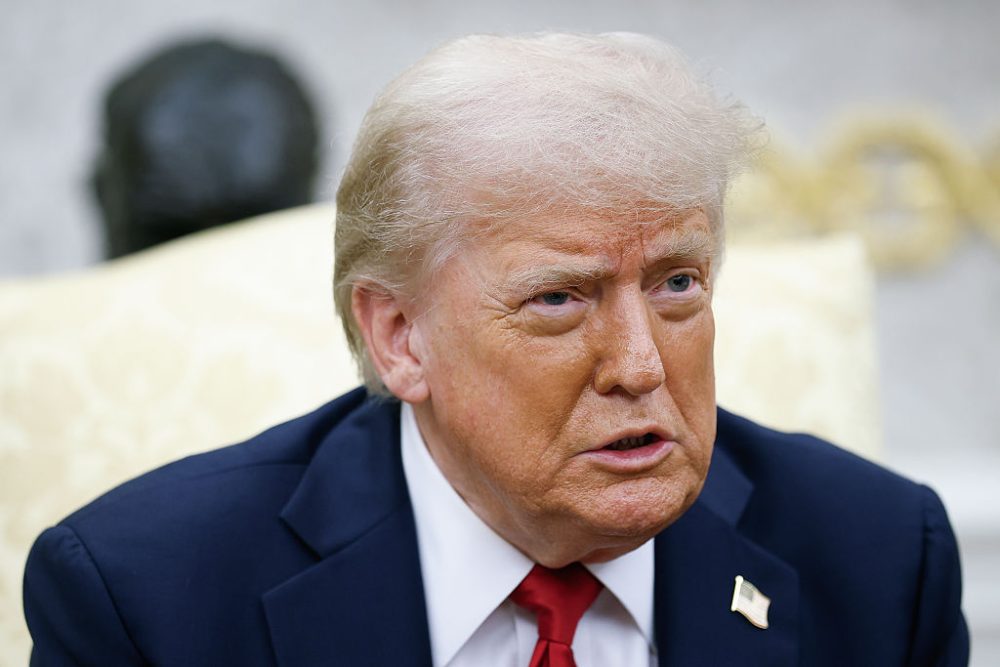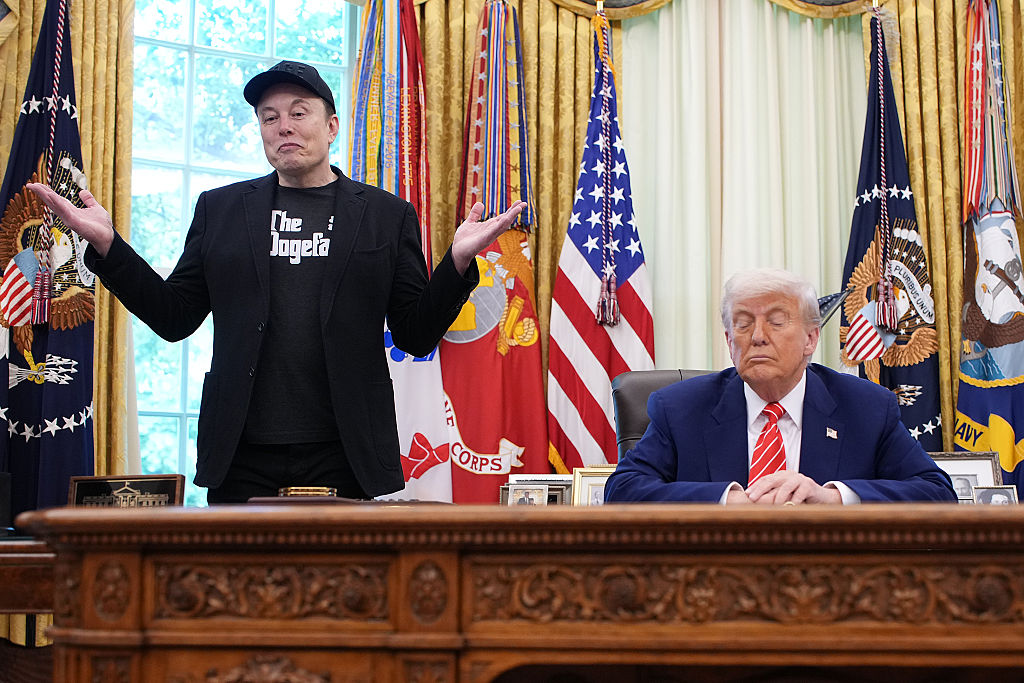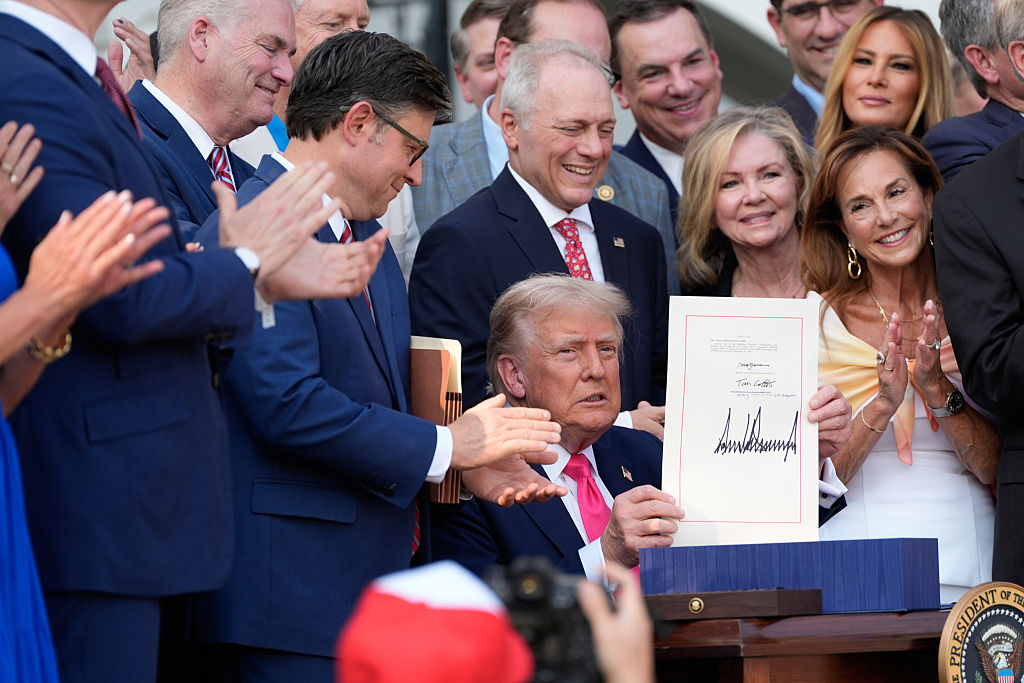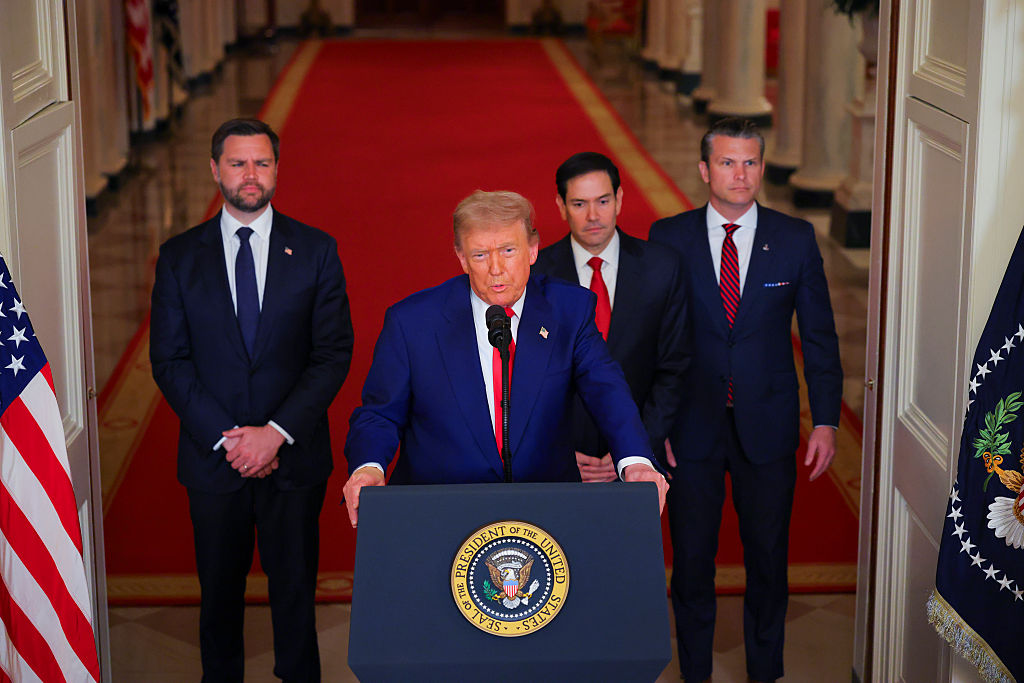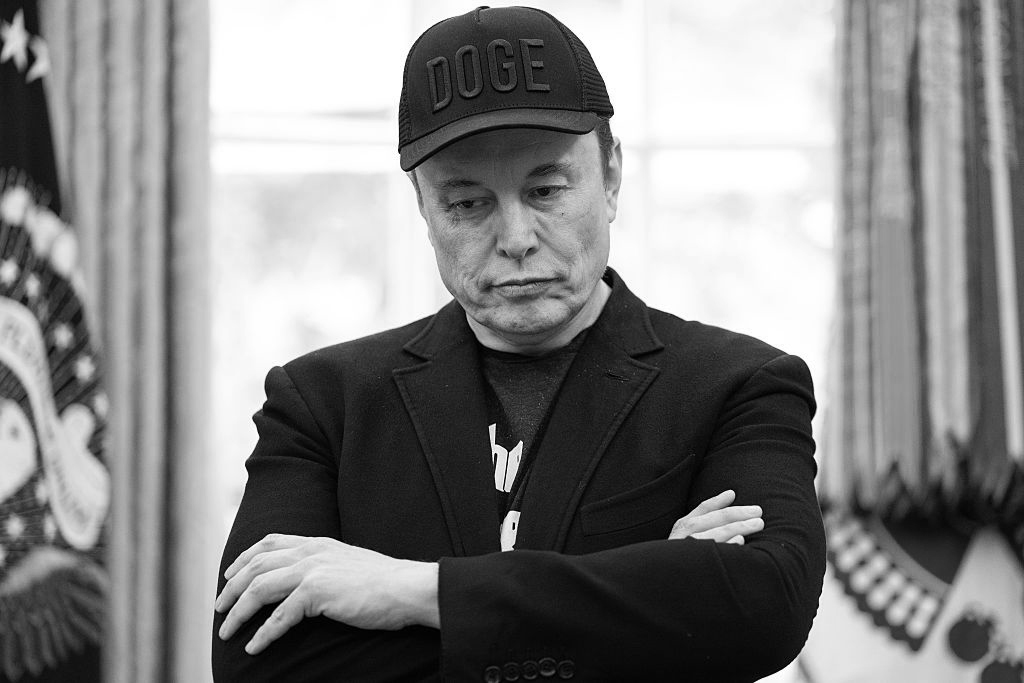My memory of Colin Powell feels personal, even though we were 6,000 miles apart at the time. I was in Baghdad, covering the invasion of Iraq for the BBC. Powell was giving the speech of his life at the UN Security Council, accompanied by PowerPoint, trying to convince the world that Iraq had weapons of mass destruction.
I had just come from a press conference with senior Iraqi officials, who denied there were any WMDs in the country. They were shifty, oleaginous, terrified of Saddam. It wasn’t hard to believe they were lying and that dignified, decent Colin Powell, was right.
“If Powell says so,” I thought, “it’s probably true.” As Powell himself wrote later, it was a moment that echoed Adlai Stevenson’s speech to the UN in 1962, which demonstrated the Soviets were putting missiles on Cuba, despite their denials. It is Powell’s tragedy — and Iraq’s — that he used his charisma and his reputation to sell the invasion of Iraq to America and to the world.
In light of later events, it is worth remembering exactly what Powell said and did at the UN as the countdown to war took place. He talked about biological weapons in his speech and then, dramatically, he held up a small vial of white power as if it were anthrax — it wasn’t. That rhetorical sleight of hand now seems to stand for the whole speech, which was, from start to finish, almost entirely false. Iraq could have thousands of gallons of anthrax, he said, and trains and trucks with mobile labs to make other biological weapons. It had missiles that were made to the high specifications needed to carry a nuclear bomb. Powell left no room for uncertainty about these claims: “My colleagues, every statement I make today is backed up by sources, solid sources. These are not assertions. What we’re giving you are facts and conclusions based on solid intelligence.” Privately, though, he may have had doubts. His chief of staff at the time, Lawrence Wilkerson, told CNN years later that Powell had walked into his office and “said words to the effect of, I wonder how we’ll all feel if we put half a million troops in Iraq and march from one end of the country to the other and find nothing?”
The tragedy of Colin Powell is all the greater because he might have been the only person who could have stopped the war. Why didn’t he resign or threaten to resign? President Bush says in his memoir, Decision Points, that Powell had the “deepest reservations” about the war. “In a one-on-one meeting in early 2003, he had told me he believed we could manage the threat of Iraq diplomatically.” If that really was Powell’s belief, it was astonishing that he could have remained a part of Bush’s war cabinet. In his book about leadership, It Worked For Me, Powell mounted a defense of his reputation and especially of how he came to make his speech at the UN. It would have been a lot worse, he wrote, but for a rear-guard action he fought against the administration’s war enthusiasts. He rejected an “incoherent…unusable” draft of his speech written by Scooter Libby, chief of staff to Vice President Dick Cheney, which tried to link Iraq to 9/11, something that wasn’t backed by the intelligence. Still, Powell accepted that the speech he did finally give was still a “blot” on his reputation. He should have questioned what he was being told. “I am mad…at myself for not having smelled the problem. My instincts failed me.”
Such an apology, or acknowledgement, might seem inadequate to a war that cost some 4,500 American lives and the lives of hundreds of thousands of Iraqis. But in saying that Iraq had WMDs, Powell was simply reflecting the assessment of the US intelligence community. Almost everyone in Washington believed it to be true. But Washington’s failure to foresee the insurgency in Iraq was more even costly — in lives and in damage to American power and prestige — than the mistakes over WMDs. And yet Powell did seem to foresee this, or at least he anticipated some of the problems that would come with an American occupation of Iraq. He spoke at length to Bob Woodward for his book Plan of Attack. Woodward wrote that Powell feared Iraq would tie down most of the American army and turn the Middle East into a “cauldron.” Powell famously invoked the so-called Pottery Barn rule, telling President Bush: “You break it…you own it.”
The kindest interpretation of Powell’s actions is that he stayed on in Bush’s war cabinet out of principle. As Woodward wrote — clearly channeling Powell’s own words — resigning would have been an unthinkable act of disloyalty to his president, to the United States military and to the soldier’s code, and above all to the men and women who would have to fight the war. “No way on God’s earth could he walk away at that point… The kids were the ones who fought, Powell often reminded himself.” Powell had, of course, begun his career as a soldier, being decorated for bravery and then going on to become chairman of the Joint Chiefs. He then became the first black national security adviser, then the first black secretary of state. These achievements are enough to earn his place in history. On his way up, he made few enemies, radiating decency and integrity. (“Be kind,” was one of his rules of life.) But he will be remembered mainly as the salesman for a war he didn’t believe in and for a speech full of lies, even if those lies were not his own.
This article was originally published on The Spectator’s UK website.



